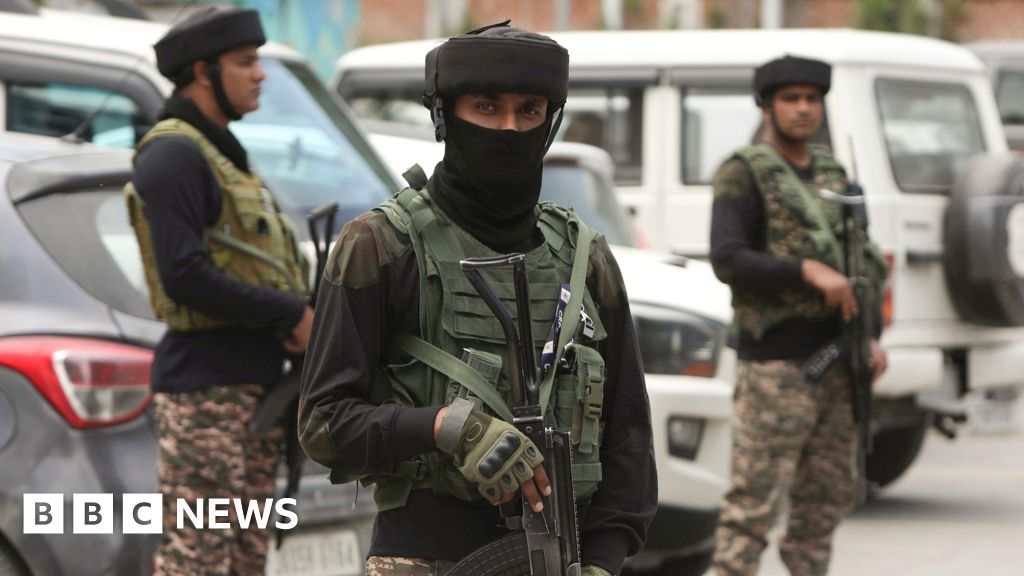Why India Could Not Stop IMF Bailout to Pakistan

Last week, the International Monetary Fund (IMF) made headlines by approving a substantial bailout of $1 billion (£756 million) for Pakistan. This decision has sparked significant controversy, particularly in India, where tensions have escalated between the two nuclear-armed neighbors. The backdrop of this financial assistance coincided with a recent surge in military hostilities, although the situation saw a brief respite with a United States-led ceasefire declaration.
Despite India's vocal disapproval, the IMF’s executive board sanctioned the second tranche of a larger $7 billion loan package. The board justified its decision by stating that Islamabad had shown commendable commitment to implementing crucial economic reforms, which are vital for ongoing recovery in Pakistan’s struggling economy. Furthermore, the IMF reiterated its intention to support Pakistan in enhancing its resilience against climate vulnerabilities and natural disasters, indicating future access to an additional $1.4 billion in funding.
India's government responded strongly to the IMF's decision, raising concerns on two primary fronts. Firstly, Indian officials questioned the efficacy of the IMF bailouts, citing Pakistan's poor historical performance in carrying out necessary reforms. They pointed out that Pakistan has relied on the IMF for assistance a staggering 24 times since 1958, often without substantial improvements in governance. Hussain Haqqani, a former Pakistani ambassador to the United States, elaborated on this issue, likening continual IMF assistance to a patient frequently needing intensive care, suggesting that underlying structural issues remain unaddressed.
More critically, India expressed alarm over the potential misuse of funds for what it termed “state-sponsored cross-border terrorism,” a serious allegation that Pakistan has consistently denied. India asserted that by proceeding with the bailout, the IMF risks damaging its own credibility and that of its contributors, suggesting that this decision undermines global values and sends a troubling message to the international community.
In light of these concerns, the IMF has not yet responded publicly to India's objections. Experts have noted that India's ability to influence the IMF is somewhat limited; as one of the 25 members of the IMF board, India represents a coalition with three other countries: Sri Lanka, Bangladesh, and Bhutan. In contrast, Pakistan is grouped within the Central Asia bloc, which includes Iran. While the United Nations operates on a one-country-one-vote basis, the IMF’s voting structure is determined by a member country's economic stature and its financial contributions, leading to criticisms that this system favors wealthier Western nations. Currently, the United States holds the largest voting share at 16.49%, while India’s representation is a mere 2.6%.
Moreover, the IMF operates under rules that do not allow members to vote against a proposal; they can either support it or abstain. Decisions are typically reached by consensus, which complicates the ability of any single country, including India, to block funding proposals. As noted by an unnamed economist, this situation highlights how the vested interests of powerful nations can heavily influence decision-making processes within the IMF.
Reform of the IMF’s voting structure emerged as a significant topic during India's G20 presidency in 2023. Recommendations put forth by former Indian bureaucrat NK Singh and former US Treasury Secretary Lawrence Summers called for a reevaluation of the connection between voting rights and financial contributions, advocating for a more equitable representation of both the Global North and Global South. However, there has been minimal progress on implementing these crucial recommendations thus far.
Adding to the complexity of the IMF's decision-making framework are recent changes to its rules regarding funding for countries embroiled in conflict. In 2023, the IMF approved a landmark $15.6 billion loan to Ukraine, marking the first time the institution extended such a large loan to a nation at war. This precedent raises questions about the IMF's ability to deny funding to Pakistan based on similar circumstances, especially when it has already committed to the loan. Mihir Sharma from the Observer Research Foundation in Delhi pointed out that the IMF’s actions indicate it cannot justify halting an already-arranged loan to Pakistan while it has made exceptions for other nations in dire situations.





























